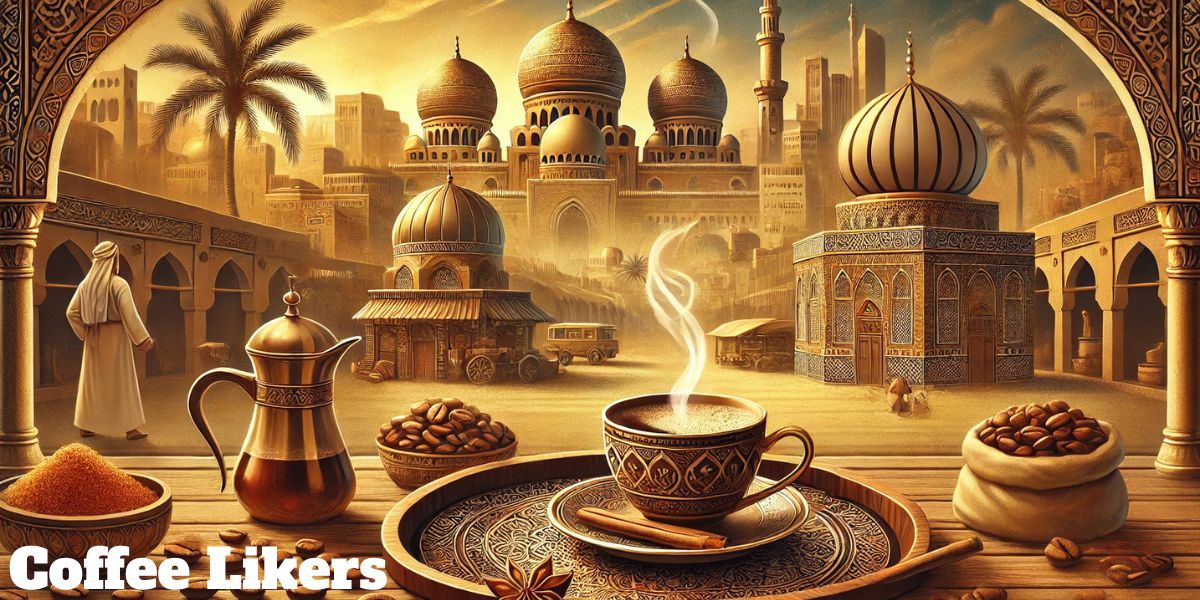Arabica coffee is well-known for its delicious taste and smell. Many people all over the world enjoy it, and it is the most popular kind. Arabica coffee has a smooth and complex flavor.
Have you ever wondered what makes Arabica coffee special? This article will discuss what does arabica coffee mean, its origin, unique qualities, and cultivation process. We will explore why coffee lovers have been fond of it for a long time.
What does arabica coffee mean and how does it differ from other types of coffee? Coffea arabica is the plant that produces Arabica coffee. This plant is one of the main types of coffee. Arabica coffee tastes smoother and sweeter than other types, like Robusta. It also has less caffeine. People like to grow it in specific places.
What Does Arabica Coffee Mean: Brief Description
Coffee from Coffea arabica plants is called arabica coffee. One of coffee’s two most important types, this plant originated in Ethiopia.
The other type is Coffea canephora, also known as robusta. People all over the world enjoy Arabica beans because of their delicious taste. They often have a sweet flavor with hints of chocolate, caramel, nuts, and berries.
The name “Arabica” likely started in the 7th century. During that time, coffee was brought to the Arabian Peninsula from Ethiopia. As coffee farming and trade expanded in Yemen and other Arabian regions, “Arabica” became the name for this type of coffee.

Why Is It Called Arabica Coffee
Arabica coffee beans started in Ethiopia, but the name “Arabica” comes from its history.
In the 7th century, coffee went across the Red Sea from Ethiopia to Yemen and lower Arabia. This area was very important for growing and sharing coffee beans.
Arab scholars were among the first to write about roasted coffee beans used to make drinks. They found that coffee helped them stay awake and focused during long hours of studying and working.
As coffee became popular in the Arabian Peninsula and other places, it became associated with “Arabia.” This is why this popular type of coffee is called “Arabica.”
Where Is Arabica Coffee Grown
Arabica coffee grows best in specific areas with good conditions. These beans prefer tropical climates at higher altitudes, usually between 3,000 to 6,000 feet above sea level. This height provides cool temperatures and enough rainfall, necessary for producing high-quality beans.
Many countries are well-known for their Arabica coffee, mainly in the “Bean Belt” between the Tropics of Cancer and Capricorn. Some top producers include:
- South America: Brazil and Colombia are major producers of Arabica coffee, playing a significant role in the global coffee supply.
- Central America: Countries like Costa Rica, Guatemala, and Honduras are recognized for their excellent Arabica coffee, which often has unique flavors.
- Africa: Ethiopia, considered the birthplace of Arabica coffee, still produces special varieties of this beloved bean.
Is Arabica Coffee The Healthiest
Arabica coffee, like many coffees, has many health benefits. These benefits mostly come from its antioxidants.
Antioxidants are substances that protect your cells from harm caused by bad molecules called free radicals.
Some studies show that drinking coffee in moderation can lower the risk of long-term diseases. This includes type 2 diabetes, heart disease, Parkinson’s disease, Alzheimer’s disease, and some types of cancer.

However, it is important to have a balanced view. While Arabica coffee can be good for health, drinking too much can cause problems like anxiety and trouble sleeping. So, enjoying it in moderation and keeping a healthy lifestyle is very important.
Why Is Arabica Coffee So Expensive
Arabica coffee costs more than Robusta coffee because it is of better quality, in demand, and more expensive to grow. Arabica beans are well-liked for their smooth flavor and pleasant aroma, which is why they are so popular.
Growing Arabica plants requires specific conditions like high altitudes, tropical weather, and lots of rain. These plants are more likely to get diseases and pests, which makes production harder and more expensive.
Additionally, factors like trade rules, supply chain costs, and market demands affect Arabica coffee prices globally.

The Origin And Characteristics Of Arabica Coffee Beans
The story of Arabica coffee starts in the highlands of Ethiopia, in a place called Kaffa. We don’t know all the details about how it was discovered, but it is thought to be the first species of coffee that people grew.
There’s a tale about a goat herder named Kaldi. He saw his goats acting very energetic after they ate berries from a certain tree—the Coffea arabica plant. Curious, Kaldi tried the berries, and he felt the same boost.
Soon, word spread about this energizing fruit. People started to grow it and came up with different ways to brew coffee. Arabica coffee became a key part of Ethiopian culture. It was cherished for its ability to give energy and was enjoyed at social events and ceremonies.

The Difference Between Arabica And Robusta Coffee Beans
Arabica coffee is very popular because it tastes really good, but Robusta coffee is also important in the coffee world.
One big difference is the caffeine. There is almost double the amount of caffeine in Robusta beans than in Arabica beans. This extra caffeine makes Robusta coffee taste stronger, more bitter, and bolder.
You can also taste earthy and nutty flavors in Robusta coffee. Robusta plants are tougher than Arabica plants. They can resist diseases well and can grow in hot weather and at lower altitudes. Because of this, Robusta coffee is cheaper and easier to find. It is often used in coffee blends, espresso drinks, and instant coffee.
Flavor Profile And Taste Notes Of Arabica Coffee
The great thing about Arabica coffee is its fantastic taste. Arabica beans are known for their nice smell and pleasant acidity. They also have different flavors that vary depending on their origin and processing.
Some common flavors in Arabica coffee are:
- Chocolate: This rich flavor is often sweet.
- Caramel: This sweet and toasty flavor pairs well with chocolate.
- Nuts: Hints of hazelnut, almond, or pecan give the coffee a cozy feel.
- Fruits: Depending on their origin, Arabica beans can have flavors like citrus or berries, adding a nice touch to the overall taste of the coffee.
Health Benefits Of Consuming Arabica Coffee
Arabica coffee is not only delicious, but it can also be good for your health. The beans have beneficial compounds like antioxidants that can protect your cells from damage caused by harmful free radicals.
Research suggests that drinking a moderate amount of coffee, around 3-4 cups a day for most adults, may have the following benefits:
- Heart Health: Some studies indicate that drinking coffee could reduce the risk of heart disease. However, too much caffeine can increase your heart rate and blood pressure, so it’s best to consume it in moderation.
- Brain Health: The caffeine in coffee may benefit your brain by enhancing alertness and focus, and possibly even protecting against cognitive decline as we get older. To fully understand this, more research is needed.
- Liver Health: Some studies suggest that drinking coffee could decrease the risk of liver diseases such as cirrhosis and liver cancer. To confirm this, further research is needed.
Sustainability And Ethical Considerations In Arabica Coffee Production
The need for Arabica coffee has led to concerns about how it is produced sustainably and ethically. If coffee farming is not done correctly, it can harm the environment by causing issues like deforestation, water wastage, and greenhouse gas emissions.

Choosing ethically sourced Arabica coffee helps ensure fair treatment of farmers, promotes better farming practices, and protects the environment.
To find brands that prioritize ethical and sustainable sourcing, look for labels like Fair Trade, Organic, and Rainforest Alliance.
How To Brew The Perfect Cup Of Arabica Coffee At Home
Brewing a great cup of Arabica coffee at home allows you to enjoy its delicious taste and lovely aroma. Everyone has their own idea of the “perfect cup,” but learning some simple techniques can really enhance your coffee experience.
Essential Equipment:
- Good Grinder: Freshly ground beans make a big difference. Get a burr grinder for even grinds.
- Brewing Method: Experiment with different ways to make coffee until you find what you like best. You can use a French press for a rich brew, a pour-over method for a smooth cup, or an espresso machine for a strong shot.
- Water Temperature: It is best to brew at a temperature of 195-205 degrees Fahrenheit. This range helps bring out the flavors.

Popular Arabica Coffee Blends And Regions
The world of Arabica coffee is very diverse. There are many types and blends, each with its special traits. Here are some popular ones:
Regions:
- Brazil: Brazil is the biggest producer of Arabica coffee. They have many kinds of beans, which often taste like chocolate and nuts, and have low acidity.
- Colombia: Colombian Arabica has a well-balanced flavor. Known for its smooth finish, fruity notes, and medium acidity, it has a medium acidity.
- Ethiopia: Ethiopia is where Arabica coffee comes from. They have many different types of beans, famous for their floral smells, citrusy acidity, and complex flavors.
Popular Varieties: Typica is loved for its sweet, clean taste. Bourbon is also enjoyed for its delicious chocolate and caramel notes.
The Cultivation And Harvesting Process Of Arabica Coffee Beans
The journey from seed to cup starts with growing the Arabica coffee plant. These plants need specific conditions to thrive, such as:
- Altitude: They grow best at heights between 3,000 and 6,000 feet above sea level.
- Temperature: The ideal temperature for Arabica coffee is between 64 and 73 degrees Fahrenheit.
- Rainfall: They require around 60 inches of rain each year for optimal growth.
The Arabica coffee plant produces a fruit known as a coffee cherry. When the cherries turn bright red, they are carefully picked, usually by hand. This process requires a lot of effort and skill because only the ripest cherries are selected, as they provide the best flavor. Some people also grow Arabica coffee plants indoors as their houseplants.

Exploring The World Of Single-Origin Arabica Coffees
Coffee fans who like different flavors often choose single-origin Arabica coffees. “Single-origin” means beans from a specific place, like one farm or group of farmers.
This focus on where the coffee comes from lets fans enjoy unique tastes influenced by local factors like soil
(Coffea Arabica soil) or altitude, rainfall, and how the beans are processed. From Ethiopian Yirgacheffe’s flowery and citrusy flavors to Sumatra Mandheling’s sweet chocolate taste, each single-origin Arabica coffee tells a special flavor story.
Exploring these coffees is like going on a fun journey. It helps you appreciate the skill of growing coffee and the many different types of Arabica beans.
Tips For Storing Arabica Coffee Beans To Maintain Freshness And Flavor
Storing your Arabica coffee beans properly is very important to keep them fresh and tasty.
Some easy tips to remember here:
- Buy Whole Beans: Ground coffee stays fresh longer than whole beans. Get a good grinder to grind your beans right before making coffee for the best taste.
- Store in an Airtight Container: Air can make coffee beans go bad. Keep your beans in a container that seals tightly in a cool, dark, and dry place. Don’t put coffee near heat, moisture, or strong smells. These can ruin the flavor.
- Avoid the Freezer: Some people think freezing coffee beans is good, but it’s not. Freezing can add moisture and change the taste of the beans. It’s better to keep your beans in a sealed container at room temperature.
FAQ About What Does Arabica Coffee Mean
What Is So Special About Arabica Coffee?
Arabica coffee is best and different from others because it has high quality. It has a smooth and flavorful taste. You will enjoy its pleasant acidity and sweet fragrance. It usually has a milder and more detailed flavor compared to other coffee types like Robusta.
What Is The Difference Between Arabica Coffee And Regular Coffee?
“Regular coffee” can mean different blends. The key difference usually comes from the type of coffee bean used. Arabica coffee is famous for its smooth taste and high quality. On the other hand, Robusta has increased caffeine content and can taste more bitter.
What Does It Mean 100% Arabica Coffee?
“”100% Arabica coffee” is coffee made exclusively from Arabica beans. This ensures a better taste. It also shows that no other types of beans, like Robusta, are mixed in the coffee.
What Is The Difference Between Arabica Coffee And Ground Coffee?
Arabica coffee is a certain kind of coffee bean. Ground coffee is what you call the coffee bean after it is ground up. You can get ground Arabica coffee, which means the Arabica beans have been ground for brewing.
Final Thought
Arabica coffee has a long history and unique flavors. It is also known for being good for you. This kind of coffee is loved by coffee fans everywhere.
Lots of people like to have it in the morning or when hanging out with friends. Arabica coffee gives us the tasty and top-quality experiences we want. In this blog post, we have discussed, what does arabica coffee mean. Thank you for visiting our website.





Leave a Reply